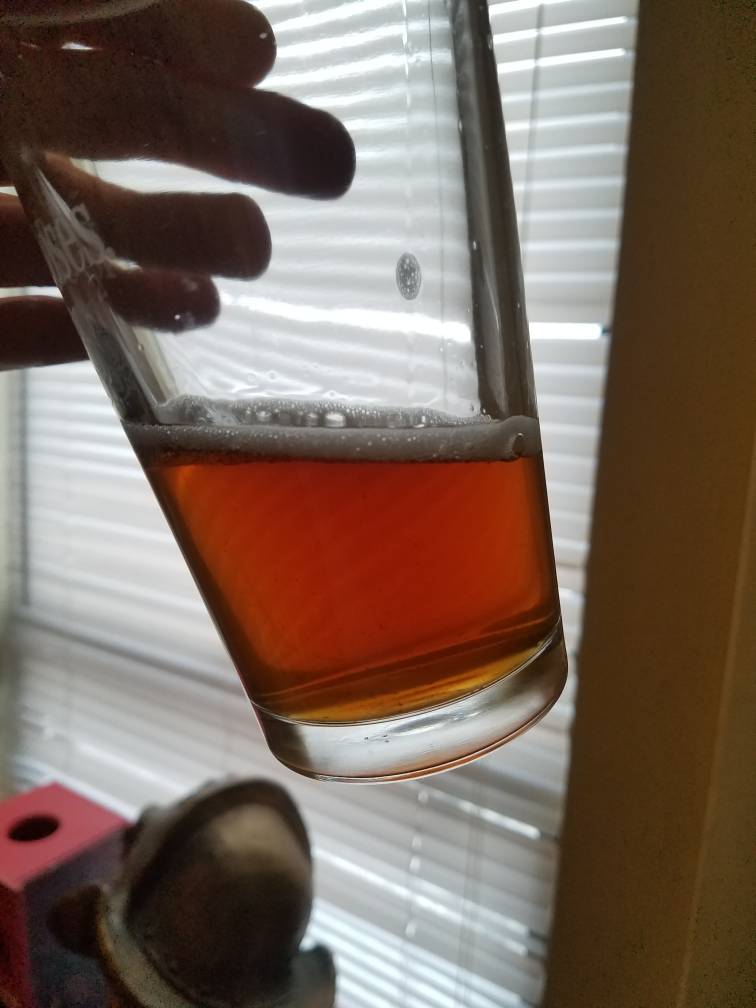bushizell
Well-Known Member
- Joined
- Feb 3, 2018
- Messages
- 48
- Reaction score
- 10
So I brewed my 3rd batch today, first time using RO water. A few other novice brewers I know are making Irish Reds and they asked if I wanted to bring my own to their St. Patrick's Day beer swap. Since my first two batches ended up with some sorta twang (either from the tap water, or the LME) I decided to go pretty simple for this brew. The use of the whirlfloc tablet and RO water really cleaned this brew up and it was the first time my wort actually tasted of quality.
2.5 Gal batch
3.7 Gal used total
1.048 OG
23.1 IBU
3oz Crystal 40L
3oz Crystal 120L
2oz Roasted Barley 300L
3Lb Extra Light Plain Extract
0.5oz Ekg 6.6% 60 min
0.5oz UK Fuggle 5% 30min
0.6 Whirlfloc tablet 10mins (was difficult to break in half lol)
English Salfale dry yeast.
It's just now in the fermenter, but I'm pretty excitied by the way the wort turned out. Roasted notes and Carmel toffee and everything! Is this a good sign of things to come? Does anyone have any tips on adjusting the recipe with salts since it's been ran through RO? Chloride to increase mouthfeel? I have gypsum and calcium chloride from my LHBS. But I'm not sure how much to use etc. The beer appears to be light in flavor but still delicious, and should ring in at 4.5%

2.5 Gal batch
3.7 Gal used total
1.048 OG
23.1 IBU
3oz Crystal 40L
3oz Crystal 120L
2oz Roasted Barley 300L
3Lb Extra Light Plain Extract
0.5oz Ekg 6.6% 60 min
0.5oz UK Fuggle 5% 30min
0.6 Whirlfloc tablet 10mins (was difficult to break in half lol)
English Salfale dry yeast.
It's just now in the fermenter, but I'm pretty excitied by the way the wort turned out. Roasted notes and Carmel toffee and everything! Is this a good sign of things to come? Does anyone have any tips on adjusting the recipe with salts since it's been ran through RO? Chloride to increase mouthfeel? I have gypsum and calcium chloride from my LHBS. But I'm not sure how much to use etc. The beer appears to be light in flavor but still delicious, and should ring in at 4.5%










































![Craft A Brew - Safale S-04 Dry Yeast - Fermentis - English Ale Dry Yeast - For English and American Ales and Hard Apple Ciders - Ingredients for Home Brewing - Beer Making Supplies - [1 Pack]](https://m.media-amazon.com/images/I/41fVGNh6JfL._SL500_.jpg)
















